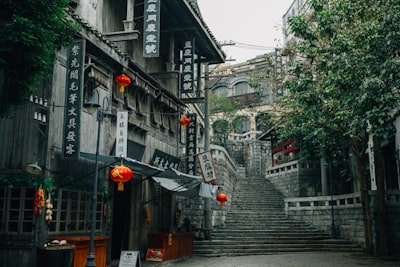
This kind of censorship is concerning, as it impedes the free flow of information and scientific collaboration that is critical in responding effectively to global health crises. By suppressing certain findings and manipulating the narrative, China's government has been able to control the COVID-19 story and shape public opinion at home and abroad.
The impact on global health
Chinese censorship has far-reaching consequences for global health. By suppressing important information about the virus and its origins, it becomes difficult for scientists and researchers around the world to develop effective treatments, vaccines, and prevention strategies.
Moreover, the lack of transparency and honesty in China's handling of the pandemic can erode trust in international health organizations and hinder collective efforts to combat future outbreaks. When governments prioritize their own political interests over public health, it puts lives at risk.
The role of freedom of speech
Freedom of speech and the exchange of ideas are not only fundamental human rights but also essential for progress and innovation. When information is censored or manipulated, it stifles creativity and hinders scientific advancement.
In the context of COVID-19, open and transparent communication is crucial for identifying and responding to emerging threats. Without accurate and timely information, the global community is at a disadvantage in tackling the virus and preventing future pandemics.
Challenges for journalism and accountability
Chinese censorship poses significant challenges for journalists and media outlets trying to provide accurate and unbiased reporting on the pandemic. Journalists working within China's tight information control face pressure to conform to the official narrative, limiting their ability to report the truth.
This censorship also hampers accountability, as it becomes difficult to hold governments and institutions responsible for their actions. Without access to all the facts, it is challenging to fully understand the decisions and mistakes made during the early stages of the pandemic.
The need for international cooperation
The COVID-19 pandemic has highlighted the need for increased international cooperation and information sharing. In order to effectively respond to global health crises, countries must collaborate and exchange scientific findings, data, and best practices.
Chinese censorship undermines this vital cooperation by impeding the free flow of information. It not only puts global health at risk but also perpetuates a culture of secrecy and non-transparency, which can have broader implications for international relations.
Transparency and trust in the post-pandemic era
As the world moves towards recovery from the COVID-19 pandemic, transparency and trust will be key in rebuilding society and preventing future crises. Governments and institutions must prioritize open communication, respect for freedom of speech, and the dissemination of accurate information.
Efforts should be made to hold countries accountable for transparency and honesty in reporting public health emergencies. International organizations should ensure that member states adhere to principles of openness and commit to sharing information for the greater global good.
The power of citizen journalism and digital activism
In the face of censorship and information control, citizen journalism and digital activism have become powerful tools for uncovering the truth and holding governments accountable. Through social media platforms and online networks, individuals can share information and bypass official channels.
While these digital movements may face their own challenges and risks, they play a crucial role in amplifying voices and shining a light on issues that may otherwise be suppressed. The power of technology can empower individuals to challenge censorship and fight for transparency.
In conclusion, Chinese censorship in relation to the COVID-19 pandemic has revealed the dangers of information control and manipulation. It hampers global efforts to understand and combat the virus, erodes trust in international institutions, and poses challenges for journalism and accountability. Moving forward, transparency, openness, and the value of freedom of speech must be upheld to ensure a more resilient and responsive global health community.
Sources:
Original article